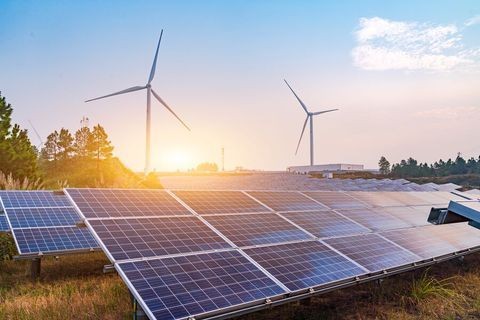Lynn Phan
Overview
Lynn T. Phan litigates and counsels clients on complex issues arising under the range of federal environmental statutes. In addition to helping clients navigate the administrative rulemaking process, her practice includes advising clients on complex compliance issues, defending against enforcement actions, and litigating agency rulemakings.
Career & Education
- U.S. Senate
Law Clerk to Senator Dianne Feinstein (D-CA), Senate Judiciary Committee, 2019
- U.S. Senate
- University of Texas at Austin, B.A., with high honors, 2016
- Georgetown University Law Center, J.D., cum laude, 2020
Executive Editor, Georgetown Environmental Law Review
- District of Columbia
- U.S. Court of Appeals for the Ninth Circuit
- U.S. Court of Appeals for the District of Columbia Circuit
- U.S. District Court for the District of Columbia
Lynn's Insights
Firm News | 9 min read | 01.09.26
Crowell & Moring Elects 15 New Partners, Promotes One to Senior Counsel and 26 to Counsel
Washington – January 9, 2026: Crowell & Moring elected 15 new partners effective January 1, 2026. The firm also promoted 26 associates to counsel, and one counsel to senior counsel.
Client Alert | 2 min read | 05.19.25
Client Alert | 3 min read | 05.05.25
Client Alert | 3 min read | 01.26.23
Appliance Manufacturers and Importers Should Prepare for Increased DOE Enforcement Activity in 2023
Representative Matters
- Representing agricultural producer in EPA and DOJ enforcement actions arising under the CWA and CAA.
- Representing crop protection companies and national trade associations in litigation challenging pesticide registrations under FIFRA and the ESA in federal district and appellate courts.
- Serving as environmental counsel to several companies across multiple CERCLA sites, including in allocation mediation proceedings and settlement negotiations.
- Representing national trade associations in litigation challenging EPA rulemaking under TSCA.
- Resolving claims by the DOE’s Office of Enforcement against manufacturing clients alleging violations of energy conservation standards under the Energy Policy Conservation Act.
- Preparing amicus briefs for the Supreme Court on behalf of trade associations regarding EPA’s authority to regulate greenhouse gases under the CAA.
Lynn's Insights
Firm News | 9 min read | 01.09.26
Crowell & Moring Elects 15 New Partners, Promotes One to Senior Counsel and 26 to Counsel
Washington – January 9, 2026: Crowell & Moring elected 15 new partners effective January 1, 2026. The firm also promoted 26 associates to counsel, and one counsel to senior counsel.
Client Alert | 2 min read | 05.19.25
Client Alert | 3 min read | 05.05.25
Client Alert | 3 min read | 01.26.23
Appliance Manufacturers and Importers Should Prepare for Increased DOE Enforcement Activity in 2023
Insights
Biden’s Environmental Justice Push and Its Impact on Retailers’ ESG Considerations
|05.26.21
Crowell & Moring’s Retail & Consumer Products Law Observer
Lynn's Insights
Firm News | 9 min read | 01.09.26
Crowell & Moring Elects 15 New Partners, Promotes One to Senior Counsel and 26 to Counsel
Washington – January 9, 2026: Crowell & Moring elected 15 new partners effective January 1, 2026. The firm also promoted 26 associates to counsel, and one counsel to senior counsel.
Client Alert | 2 min read | 05.19.25
Client Alert | 3 min read | 05.05.25
Client Alert | 3 min read | 01.26.23
Appliance Manufacturers and Importers Should Prepare for Increased DOE Enforcement Activity in 2023






